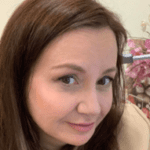Volume 37 Number 2 | April 2023
Constance Stager, MBA, MLS(ASCP), ASCLS Director

This being the case, one would wonder why there is such limited visibility for the laboratory and laboratory staff and what can be done to increase the professional profile of laboratory practitioners. Speaking from personal experience it can be difficult to boast about one’s own accomplishments. We are generally taught from a young age that we should be humble and that if we work hard and do good work, we will be recognized and rewarded. The problem is that when your profession keeps you in the department and away from the day-to-day interactions with patients and providers, it becomes easy for the laboratory and laboratory staff to become overlooked and taken for granted. For this reason, it is especially important for medical laboratory professionals to go out of their way to show their worth and promote themselves and the profession.
“It is good to remember that you are an ambassador for our profession. When you talk to others about the profession —whether with your colleagues at work, in other departments, friends, family, or social media—you are the face of the profession.”
This should start from the first day of your career to the last and even into retirement. From our first day in the classroom, we can be thinking about how to promote ourselves to enhance our own careers and how our contributions benefit the entire profession. Through my involvement in the ASCLS Board of Directors, I have had the opportunity to see the impact that students can have on the profession and how students’ opinions and ideas are valued. Putting yourself out there before your career even officially begins can really pay dividends down the road in terms of learning and job opportunities.
For the new grad, there are opportunities both at your place of employment and in the profession. At your new job, it is a time of real learning. I really learned my job in my first five years on the bench. As a new staff member, being humble and learning everything you can from your colleagues is important. After all, the past helps shape the future. It is through this time of learning that the trainers and the trainees can grow. Our field—though rooted in hard science—is ever advancing. So, don’t be afraid to distinguish yourself, while respecting the people who came before you.
Being willing to take on new projects gives you the chance to learn and eventually become the go-to person. Knowing that someone is willing to try and tackle a project, even if it is something new, can attract attention. It is also important though to touch base with management and be involved. Make sure your supervisors know what you have done and the part you played in bringing on that new instrument or training new staff. I would suggest that you make a list and share it with your supervisors before they do your evaluation.
Speaking well of your colleagues (even when they are not around) and other departments is important, too. Also, letting your supervisor know that you would be willing to be part of committees or work with other departments is always a good move. It not only helps raise your own profile but that of the department and the profession as well. It is good to remember that you are an ambassador for our profession. When you talk to others about the profession—whether with your colleagues at work, in other departments, friends, family, or social media—you are the face of the profession. Negativity not only reflects badly on you but on the whole profession. It is not always easy, but remember that this is a profession, not just a job.
Those of us later in our careers and in retirement can make a substantial impact by finding ways to promote our laboratory staff, our profession, and even ourselves. When you pass an inspection with flying colors, tell your colleagues outside of the lab and have your marketing team publish it in the organizational newsletter, or even the local paper. Promote the new analyzer you are installing and the latest and greatest testing platforms you and your staff are bringing in-house. Celebrate the achievements of your staff. Encourage staff members to attend high school career days and job fairs or go to grade school classrooms. If you are retired, maybe you have more time to participate in legislative activities or ASCLS committee positions.
Finally, participation in professional societies and organizations can play an important part in putting you in contact with others in your career field and bringing your concerns to those in public office. One of the nice things about a relatively small organization is that it is easy to have a large impact. There are so many opportunities in our own organization, ASCLS. In larger organizations it can be difficult to feel like you can make a difference or be heard. The size of ASCLS means that every individual can make a difference. From contributing to position papers to lobbying in Washington, DC, and many other opportunities are readily available both on state and national levels. Plus, the networking opportunities and friendships are an added benefit. This really is something where you get out of it what you put into it. By promoting your profession, you promote yourself, which may be easier for those of us who are uncomfortable with self-promotion. It is a win for everyone.
Constance Stager is the Director of Laboratory Services at Southeast Alaska Regional Health Consortium in Juneau, Alaska.
Reference
“The hidden profession that saves lives,” by Rodney E. Rohde, PhD, appeared in the open-access online Elsevier Connect post, February 11, 2014, updated on April 20, 2020, via https://www.elsevier.com/connect/the-hidden-profession-that-saves-lives